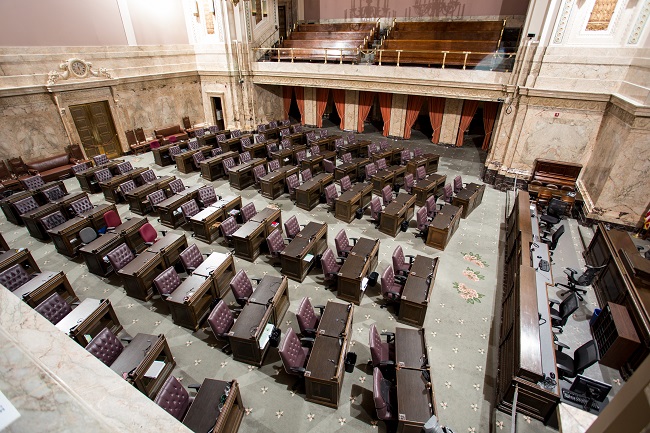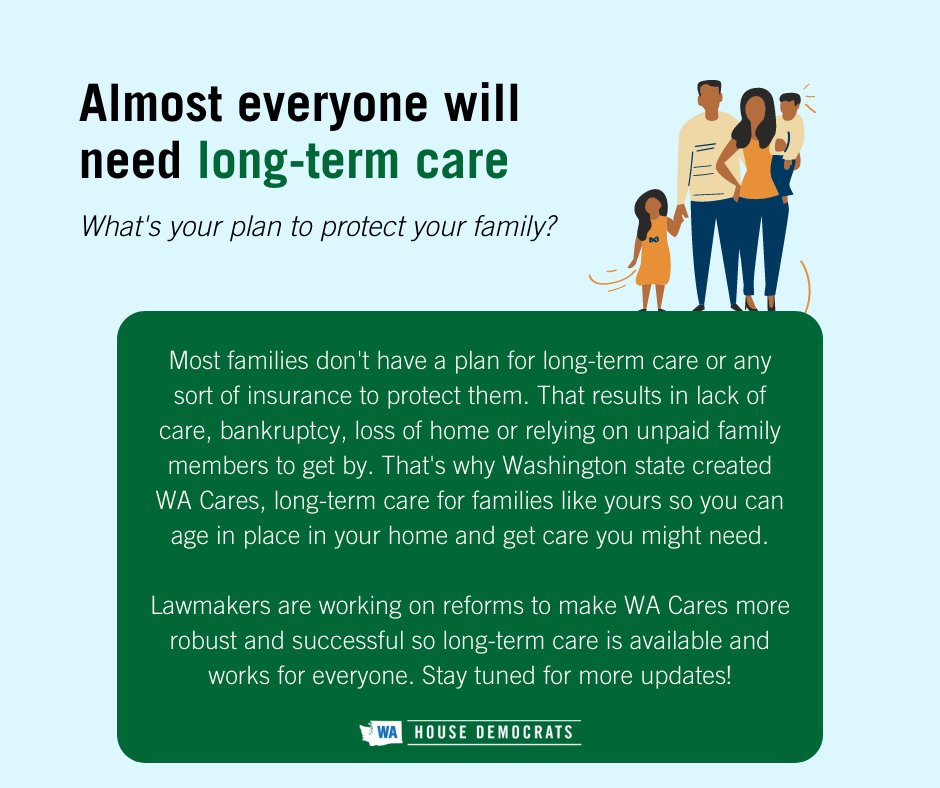Dear Friends and Neighbors,
Last week the 2022 legislative session started! In this 60-day short session we will pass supplemental operating, capital, and transportation budgets and continue to work on the important policy issues of our state. While I had hoped that we would finally be able to return to Olympia, due to rising COVID cases from the Omicron variant, we will be starting this year’s session remotely once again. We plan on re-evaluating every two weeks, but with only 60 days to work, we cannot afford to shut down because of a COVID outbreak. Last year, we were able to do our work and finish on time without one COVID case linked to the legislative session. Both the Idaho and Oregon Legislatures had to shut down for COVID outbreaks.
The benefit of a virtual session is the ability to provide remote or written testimony. You can now testify on legislation without having to drive to Olympia. Twice as many people provided input at committee hearings last year as compared to the year before. When we return to legislating in person, this is one change from the pandemic that I hope we will keep.
I also want you to know that I am closely monitoring the situation with Washington State Ferries. I am aware of the canceled last sailing on Friday night and am working closely with other legislators from ferry districts to provide policy solutions to the issues that WSF is experiencing.
How to connect in a virtual session

Here are several ways you can continue to stay engaged remotely in the legislative process and provide input.
Watch—TVW.org broadcasts all of the debates and votes that happen in the House or Senate, along with committee meetings and other events in the public interest.
Research—Visit app.leg.wa.gov/billinfo/ to look up legislation by lawmaker or topic.
Learn—The whole legislative process, from start to finish, is explained at leg.wa.gov/legislature/Pages/Overview.aspx.
Testify—Visit leg.wa.gov/legislature/Pages/Testify.aspx for an overview of the process. Written testimony is also an option, and you can also email me your story.
Stay informed—Sign up for my legislative e-memo here.
Get in touch—You can also send my office an email.
Expanding access to affordable hospital care

The high cost of healthcare is one of the largest drivers of bankruptcy in our country. Nationally, over two thirds of people who file for bankruptcy cite medical issues as a key contributor. To help alleviate this problem, Washington has a charity care law that requires hospitals to forgive some or all of the out of pocket costs of essential health care for low income patients who qualify.
Unfortunately, Washington’s law only requires hospitals to cover care for an individual making up to $12,900 per year and a family of four making up to $26,500, which is the federal poverty level. Hospitals are allowed to decide on their own level of discount for people making up to 200 percent of the federal poverty level. This ambiguity allows hospitals to abuse the system. Attorney General Bob Ferguson just successfully sued two hospital systems for failing to adequately inform or provide charity care to eligible patients.
That is why I am partnering with the Attorney General to introduce HB 1616 to expand and standardize charity care practices across the state. Hospitals profit off the health and safety of Washington residents, and this law requires them to give back to those in our society who need it most.
HB 1616 increases the eligibility for full write offs of out-of-pocket expenses to 300 percent of the federal poverty level and requires discounts for those earning up to 400 percent of the federal poverty level, expanding access to free and reduced healthcare to 2.2 million Washingtonians. Under this bill an additional 1.2 million Washingtonians will become eligible for a full write-off of their medical debt. Individuals making up to $38,600 or a family of four making $79,500 will now be eligible for a full write-off and families earning up to $106,000 would be eligible for a 50 percent discount.
Healthcare is essential for every Washingtonian, not just the ones who can afford it. This bill will help provide equitable healthcare for millions of Washingtonians and guarantee that a trip to the emergency room will not result in families losing their home or not being able to put food on the table.
Listening to your concerns, reforms to make WA Cares better for your family

Did you know that most people have no plan for how they can age in place in their own homes or handle basic long term care needs? In fact, most families don’t have any sort of insurance to protect them. That leads to people spending down their savings to qualify for Medicaid, which is paid for by the state through your tax dollars. Some people rely on unpaid family members for basic needs, or just go without care at all. We cannot accept this broken system that bankrupts people and leaves seniors and individuals with disabilities without care they need.
The solution is WA Cares, the next step for a true social safety net that protects working families like yours.
So many families do not have a plan to ensure they can age in place, in their own homes, and with the appropriate level of care or necessary home upgrades. That’s exactly what WA Cares helps provide, and why it’s so important we make sure it is successful and accessible for as many people as possible. And that’s why I’m supporting two new bills to make WA Cares better.
Those bills, HB 1732 and HB 1733, offer reform that gives near-retirees a chance to qualify for the fund—something that was missing when this program first launched—and will offer exemptions to our military spouses, disabled veterans, and border-state workers. HB 1732 will pause implementation of the program and the collection of the payroll tax for eighteen months as these issues are worked on. I also support budget plans to determine how to make the WA Cares fund portable for individuals who move out of state after they vest into the program. We are also pursuing an option to allow people who regretted opting-out a chance to reenter this important program. I will not support any other legislation that weakens or removes this crucial benefit that our senior population needs.
Corporate insurance has failed to provide for the long-term care needs of Washington families and is far more expensive and far too unreliable for most Washington families. Corporate insurance is allowed to deny you coverage for pre-existing conditions, cancel coverage for no reason, and increase premiums, keeping long-term care out of the reach of families like yours.
WA Cares won’t deny or cancel your coverage and is cost-effective for working families. We can’t let this vital benefit be stripped down or taken away from the people who need it.
No matter how old you are today, someday you will probably need some long-term care or changes to your home to age in place. I’m supporting reforms to WA Cares that ensure a robust and accessible solution for families looking to pay for long-term care needs.
Tell us how to change Washington’s tax code
For the last few years, the Tax Structure Work Group (TSWG) has aimed to identify options to make the Washington State tax code more fair, adequate, stable, and transparent for both individuals and businesses. After conducting extensive analyses of Washington’s current tax structure, as well as modeling many possible scenarios for updating the code, the TSWG wants to hear your thoughts!
Provide your feedback on ideas for changing Washington’s taxes by completing the TSWG survey before the January 31 deadline. These are just ideas at this point – the Work Group has not developed policies or bills yet. Depending on how much time you have, I encourage you to fill out either the short version of the survey (takes approximately 5 minutes) or long version of the survey (takes approximately 30 minutes) . There are also multilingual surveys available in Spanish (Español), Vietnamese (tiếng Việt), Korean (한국어), Traditional Chinese (正體字), Simplified Chinese (简化字) and Russian (русский). Thank you in advance for helping to shape the future of taxes in our state.
Sincerely,
![]()
Rep. Tarra Simmons
